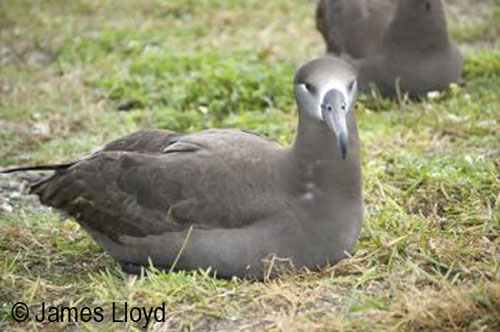The tsunami triggered by the Japanese earthquake in March 2011 caused the deaths of many thousands of North Pacific albatrosses (click here).
It also washed much floating debris into the ocean. Projections of where all this debris might head to and eventually end up have been made by the International Pacific Research Center, University of Hawaii at Manoa, utilizing a model developed on the behaviour of drifting buoys deployed over years in the ocean (click here).
The model suggests the debris will first spread out eastward from the Japan coast in the North Pacific Subtropical Gyre. In a year, the North-western Hawaiian Islands will see pieces washing up on their shores; in two years, the remaining Hawaiian Islands will see some effects; in three years, the plume will reach the west coast of North America from Alaska to Baja California. The remaining debris will then drift into the "North Pacific Garbage Patch", where it will wander around and break into smaller and smaller pieces. In five years, Hawaiian shores can expect to see another barrage of debris as much of the debris leaving the North Pacific Garbage Patch ends up on Hawaii's reefs and beaches.
The effects of this debris on the albatross populations of the North Pacific will only become known in time. Already they are at risk from ingesting small floating plastic items (such as cigarette lighters, toothbrushes and toy soldiers) which they mistake for food. These items are then regurgitated to their chicks, causing deaths among Laysan Phoebastria immutabilis and Black-footed P. nigripes Albatrosses at such breeding sites as Kure and Midway Atolls (click here).

John Cooper, ACAP Information Officer, 30 June 2011

 English
English  Français
Français  Español
Español